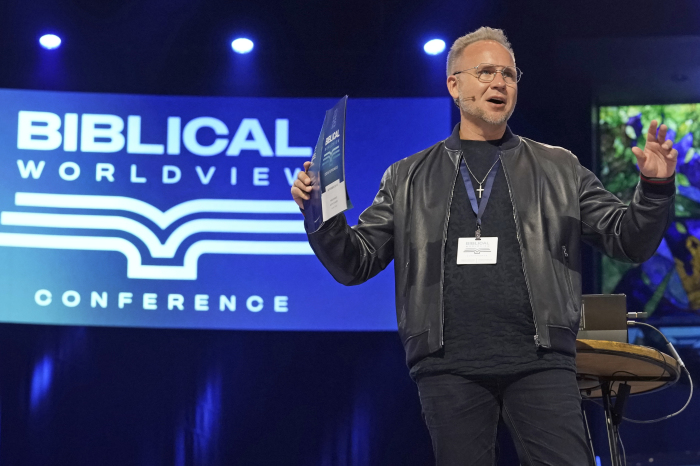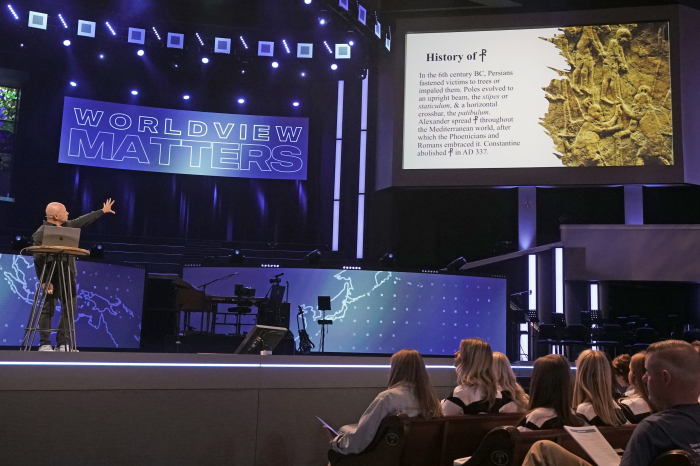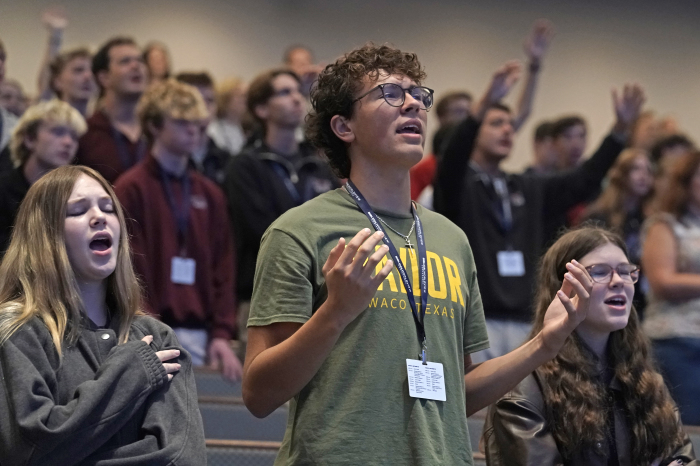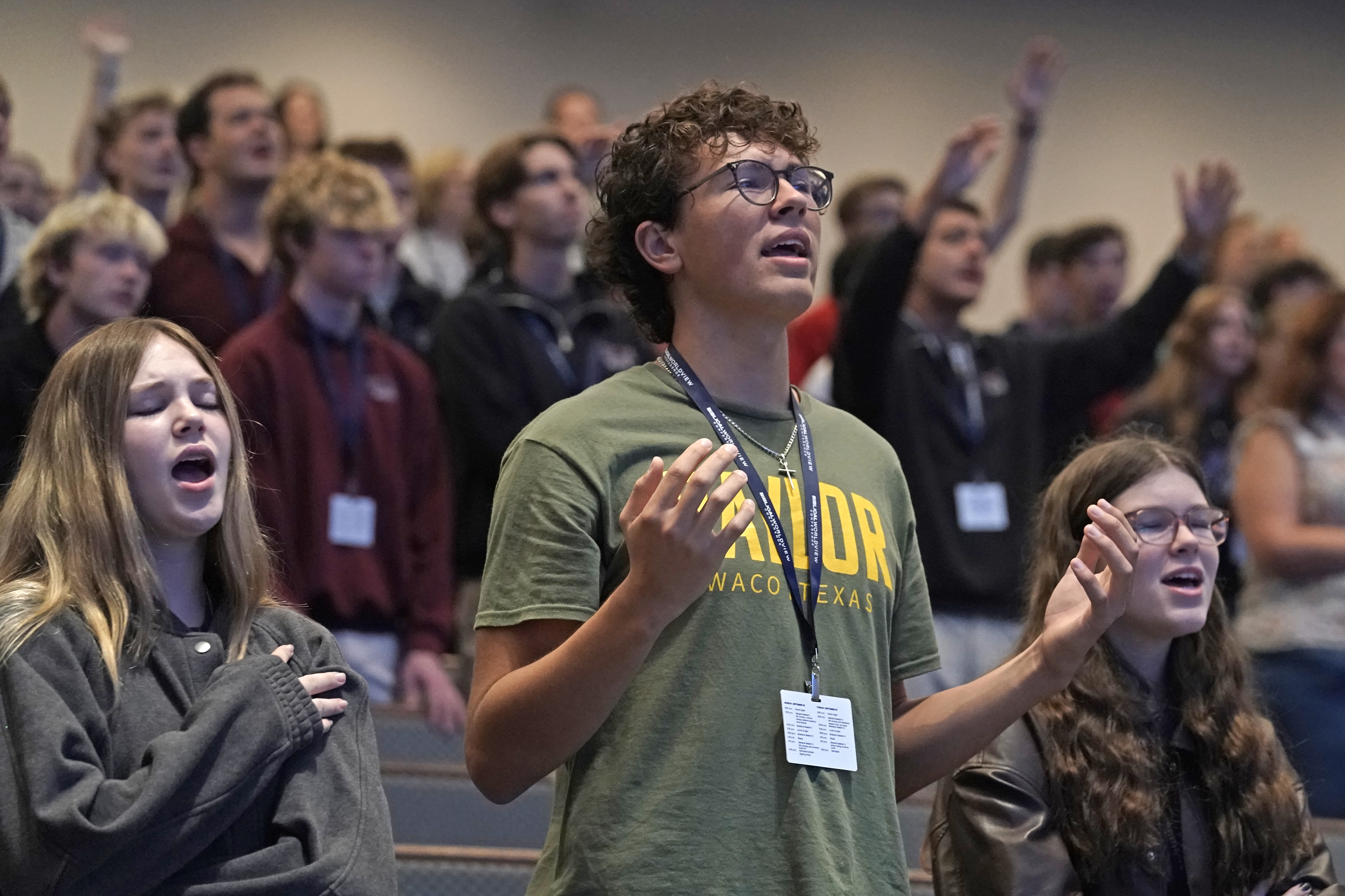
PLANO, Texas — "I believe we're on the vanguard of a new movement of Christian thinkers that the church has never seen before, and it has me so optimistic."
Dr. Jeremiah Johnston of Prestonwood Baptist Church in Plano has good cause for such optimism: this week, Prestonwood's Biblical Worldview Conference (BWC) drew nearly 5,000 attendees from over 20 states with the singular aim of becoming better equipped to reach the culture for Jesus Christ.
As Prestonwood's Associate Pastor of Apologetics and Cultural Engagement, Johnston has led the BWC — billed as the nation's largest apologetics event — for the last three years, during which he says it's gone from being exclusively geared toward Prestonwood Christian Academy (PCA) students to drawing students from 17 other schools, in addition to homeschool groups, co-ops and others from across the nation.
Over that period, says Johnston, BWC has become "more missional" in its focus.
"It began as something we just wanted to do to equip our own Christian students, where we actually closed down classes for two days," he told CP. "We talked to them about the trending questions they had."
Now, BWC perennially attracts well-known apologists, theologians and other Christian thinkers, including this year's lineup featuring Prestonwood Senior Pastor Jack Graham, author J. Warner Wallace, YouTubers Melissa Dougherty and Ruslan KD, and Trinity Broadcasting Network host Erick Stakelbeck.
Over the course of three days in North Texas, Johnston believes students from middle school and above will take home the tools to live out the truth of 1 Peter 3:15: "But in your hearts sanctify Christ as Lord. Always be prepared to give a defense to everyone who asks you the reason for the hope that is in you. But respond with gentleness and respect."
"We often think apologetics is exclusively for evangelism," he said. "That's true — it removes barriers to bring people to faith in Christ — but the questions don't stop there. Literally, people can be stolen through hollow philosophies and deceit. [The Apostle Paul is] not talking to non-Christians; he's talking to followers of Jesus. So, apologetics, a biblical worldview, is just as important."

In one of the conference's most compelling presentations, Dr. Scott Stripling, archaeologist and provost at The Bible Seminary in Katy, Texas, presented the findings of a three-year research study on the Roman practice of crucifixion, which Stripling said challenges medieval artistic depictions that have shaped modern perceptions.
"Much of what we thought we knew about crucifixion was based on medieval art, created by artists who had never witnessed a crucifixion. These images shaped our assumptions — nails placed in certain ways, the ground looking a particular way, or a single cloth covering the body," he said. "But it turns out, many of these depictions are inaccurate."
Noting the centrality of Jesus' crucifixion to the Christian faith, Stripling traced the history of crucifixion from the sixth century B.C., popularized by Alexander the Great, to its peak in the first century A.D., particularly in Judea. He demonstrated how archaeological evidence, including skeletal remains with nails, show Roman practices were designed to maximize pain and public humiliation.
Romans even conducted mass crucifixions, Stripling said, particularly during the Jewish Revolt from 66 to 70 A.D., a period when historian Josephus reported 500 crucifixions per day were performed.
"The Romans would catapult crucified bodies onto the Temple Mount to crush Jewish resistance," he explained. "Crucifixion was brutal, designed to prolong suffering. Victims carried a crossbeam weighing about 120 pounds, overseen by a team of four soldiers called a quaternion. The leader, the exactor mortis, ensured maximum pain."
The practice was so prevalent, Stripling said the Romans used various cross designs. Some victims were crucified upside down, others with arms spread on a forked beam. In Judea, the Latin or T-shaped cross was most common.
Outlining how extrabiblical sources like Josephus, Tacitus and Lucian, confirm Jesus' crucifixion, Stripling noted the New Testament mentions it 66 times. And contrary to artistic depictions of a loincloth covering Jesus' midsection, he said, he and others were crucified naked, adding to their shame.
"Jesus endured this fully, as the Bible confirms," he added.

Stripling's stark depiction of the Atonement provoked audible gasps and cries of empathy from the audience, which were silenced only when he detailed one final element of Christ's humiliation on the cross of Calvary."The Romans even used a sponge on a stick — essentially their toilet paper — to offer Jesus a drink, adding to his shame," he explained. "Hebrews describes Jesus enduring the cross, despising its shame, for the joy set before Him."While scholarly details of the crucifixion of Christ are undeniable, Stripling concluded, each and every person in attendance must respond themselves to his finished work."As an archaeologist, I can prove there was a historical Jesus, where He died, and how," he said. "But I can't prove He died in your place. That's a matter of faith."Such raw, unconventional presentations of the Gospel, like Stripling's, colored much of the two-day conference. Illusionist Drew Worsham used a Rubik's Cube to illustrate how to cultivate the "gift of curiosity," while former pastor and church planter Philip Nation shared anecdotes from corporate America in pursuit of building up leaders for the next generation. Nate Heitzing spoke of on how the Book of Acts can and should inform Christian evangelism.Undergirding each message was an unmistakable sense of urgency, shared by Johnston and others, to distill the conversation into digestible bites small enough for students to take back to their schools and churches.For this year's conference, Johnston said he wanted all speakers to deliver their message concisely and with the purpose of helping students learn to give their own short-form Gospel presentations to a generation weaned on TikTok and Snapchat."I need them to give me their best message in 20 minutes or less," he said. "We've got to get better at sharing why we believe what we believe in shorter increments. We don't have time. … We have to be more effective in those organic moments when we're having coffee together and give a two-minute truth bomb that changes your life."For Johnston, learning how to communicate more efficiently doesn't have to come at the cost of biblical truth.
"How do we give quick, crisp answers — not sound bites, but substantiated — and say it quickly and effectively?" he said. "That's what I'm trying to do in this conference."
News Source : https://www.christianpost.com/news/megachurch-heralds-new-movement-of-christian-thinkers.html
 Your post is being uploaded. Please don't close or refresh the page.
Your post is being uploaded. Please don't close or refresh the page.





